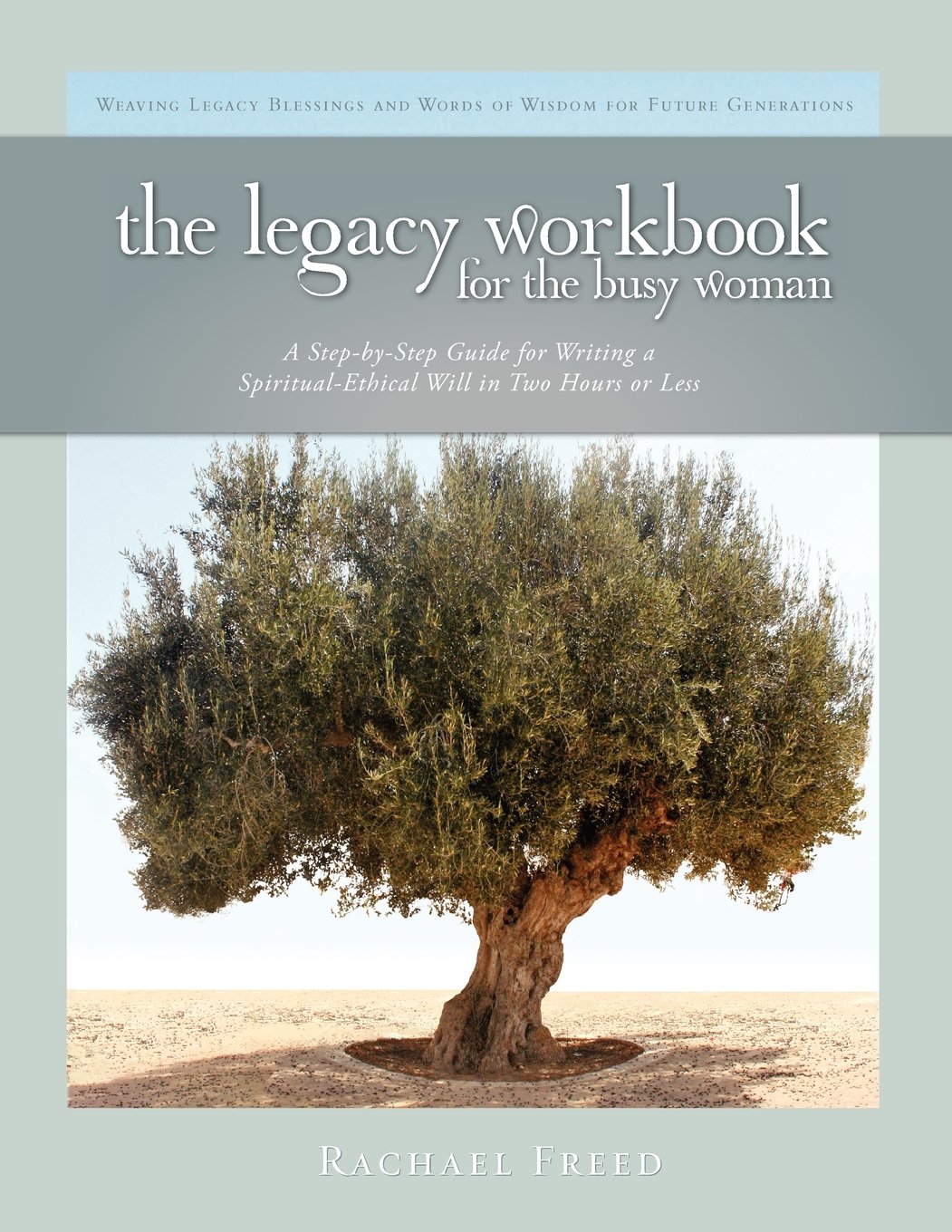From the introduction of The Legacy Workbook for the Busy Woman:
Many women, because of their busy lives, need a guide to document their legacies in a time frame that better fits the demands of their lifestyle.
My challenge was to provide a book addressing the exploration of our histories, our selves, and our values within a limited time frame without being superficial. My goal was to provide a down-to-earth practical workbook without sacrificing the spiritual essence inherent in legacy writing.
And finally, my hope was that this book would communicate the power of women’s voices and provide the skills necessary for women to express our experience and our wisdom in writing....
Several themes are woven into the workbook. One focuses on how both ordinary and extraordinary each of us is. Many women, although attracted to the idea of passing on a legacy, fear that their ordinariness makes them barren of anything worth transmitting. Rabbi Laura Geller writes about the holiness of each of our stories. Paraphrasing Deuteronomy 30:11-14, she suggests that like the one who chops wood and the one who draws water, the one who drives car pool and the one who makes dinner has a sacred story that connects her to her own tradition and future. I hope you will find your sacred essence as you document your spiritual-ethical will, expressing both your ordinariness and your extraordinariness.
Perhaps the most important theme is about breaking the silence that has held women hostage through the ages. There are inspiring quotations, chapter titles, and purposeful reflections to support you finding courage and language to tell your loved ones and the world who you really are and what matters most to you.
One legacy circle participant wept, realizing how little of her talents and power her mother had expressed during her lifetime. Most of us didn’t really know our mothers or foremothers. We have our memories of them in their roles as mothers, wives, workers. Few of them shared who they were beyond or behind those roles. When they’re gone, we experience deep regret and unending yearning to know who they really were: what mattered to them, what and whom they loved and valued, their disappointments and pain, their successes and joys, and their hopes and dreams for us.
The first chapter of this workbook addresses this need by exploring who our personal and cultural foremothers were, and by gathering the legacies they passed on to us. The need to know others, especially those from whom we came, is the mirror image of our own need to be known, heard, seen.
Chapter 2 focuses on an aspect of our feminine essence often ignored in our busy world. It will give you a fresh perspective about who you are, what is meaningful in your life, and it will clarify your contributions. We can conjecture that those who come after us will either be enriched by the gift of our written legacies, or be yet another generation left without roots, a sense of connection, or belonging to foremothers, family, and community.
Armed with a sense of who our foremothers were and who we are, we begin in chapter 3 to articulate the verbal portraits, the values and wisdom, we want included in our spiritual-ethical wills.
In chapter 4 we address the preciousness of our lives, and our thoughts about our mortality as seen through the lens of legacy. And in the final chapter, chapter 5, we gather and weave what we’ve collected in the first four chapters to write legacy letters to loved ones and to future generations.
In the course of this workbook you will be provided with the patriarchal history of the ethical will of tradition. We grew up in a culture and at a time when women’s stories and experience were neither recorded nor valued. But now we live at a time when our loved ones and the world need our values and our wisdom. Thus the need for women to transform the traditional ethical will to make our unique contribution to future generations.
Please don’t mistake this will of history, stories, values, wisdom, and love for a legal will. It is neither a legal will, which distributes your material estate, nor is it a living will, a medical and legal document detailing your end-of-life directives.

